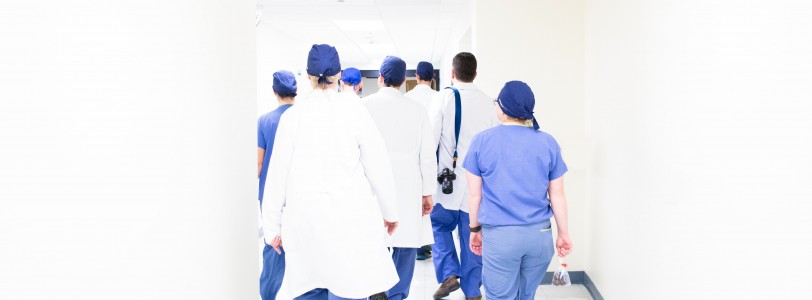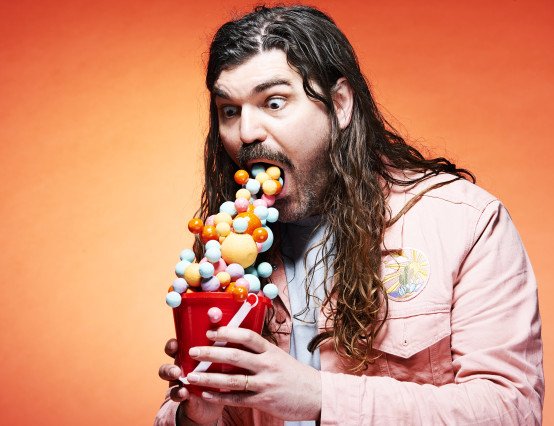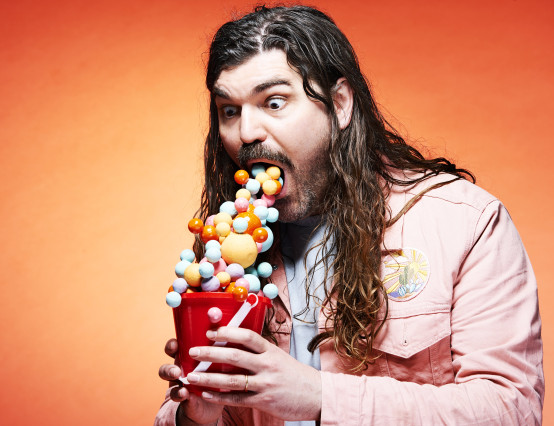I’ve always admired the work my dad does, and right now, his work is more important than ever. Due to the rapid spread of COVID-19, my dad is considered a ‘key worker’ – essential to trying to tackle the coronavirus crisis. Just like hundreds of shopkeepers, drivers, social workers, police and many others critical to the pandemic response, he is working hard to prepare for the worst of the virus. My dad is currently the only person in my household not working from home — he’s spending most hours at our local hospital.
My dad starts off by explaining that things at the hospital, quite obviously, are much different to usual; most doctors are anxious, he says, about themselves, about the virus and also about the alteration in treatment procedures and care of patients. Health professionals want to be honest and transparent but during these times, sometimes this is very difficult. He says that normally we would promise the best care for all of our patients, but all they can do right now is their best. Different choices have to be made during a crisis of this size. He explains in more detail:
We’re forced to treat patients in ways we wouldn’t normally — and we can’t know the exact effects this may have on their health.
‘Some patients have declined their treatments, and others are waiting with their diagnosis, but nothing can be done’. My dad also remarks that patients might be affected psychologically, as waiting for treatment after diagnosis can cause anxiety and depression.
Still, he believes that doctors, considering the circumstances, are pulling together and innovating creative solutions to the changing circumstances. One of the new softwares is currently being trialed in the hospital is Microsoft Teams, to help facilitate teamwork and collaborations within units, while also avoiding face-to-face meetings. My dad comments that ‘We’ve found new ways to work that patients are surprisingly happy with. Before, you weren’t allowed to give a diagnosis or discuss treatments on the phone; normally, you had to do those things face-to-face. But now, those requirements are flying out the window. People now do a number of things that would be unacceptable three weeks ago.’
Next, he comes onto the issues that the coronavirus is already presenting in the hospital: personal protection equipment (PPE). Last Saturday, my dad attended a mask fitting, where he was trained to properly fit his own mask. He had to wear the mask and complete 10 maneuvers in which his mask was sprayed with a special substance, simulating the virus. My dad claimed that if you failed the test, you had to repeat it, fitting and spraying, until you learnt how to properly fit a mask. But training to use PPE is pointless if you don’t have consistent access to it, and unfortunately hospitals across the country are currently facing a shortage, and not all of the PPE they do have is up to WHO standards. But in times of crisis, staff will have to work with what they’ve got.
The desire for PPE is as much for patient safety as it is for staff protection. Nobody wants to catch the virus, but if doctors catch it then they won’t be able to work, further stretching a system that is near breaking point.
Already we are seeing a large number of doctors self-isolating. Many of these doctors have milder symptoms that are easily interchangeable with flu, and if tested, potentially could return to work. Following Government advice, even if a member of your household has symptoms, you must isolate for 14 day, causing many healthcare workers to be at home. As my dad argues, wide-spread testing for an increased number of healthcare workers could reinforce the numbers working at the hospital, which is in full preparation for the peak of the virus. This is especially important to the doctors and nurses working in intensive care and anesthetic services; testing would allow these vital workers to get back to work.
‘Social distancing is practical for the general public, but for healthcare workers and their families, testing is essential.’
Lastly, he shares his concern that many people are still coming to the hospital with symptoms of coronavirus, putting themselves, other patients and workers at risk of contracting the illness. Patients might even unknowingly arrive for surgery with symptoms, or hide their symptoms, as they are desperate to get treated. Just last week, one of my dad’s colleagues met a patient a day before her surgery, which had been pushed forward due to COVID. However, on the morning of her operation, she had a fever and subsequently tested positive for the coronavirus. In order to tackle this, new measures have been put in place at the hospital — every staff member, doctor and patient entering into the hospital has their temperature checked and fill in a questionnaire.
I question how bad the spread of the virus is within the hospital itself and my dad jokes that he’s already mentally prepared to get corona. On a sobering note though, he drops a bombshell by stating it’s predicted that roughly 80% of the NHS will contract the virus, so he’d be lucky not to get it.
My dad is a breast cancer surgeon, and while all elective surgery has been cancelled, cancer surgery is given priority, so he is currently still operating. When I ask him whether he thinks he’ll have to stop operating at any point, he responds that they’ve restricted operations quite considerably and he and his colleagues are trying to use non-surgical methods whenever possible.
‘Personally,’ he says ‘I’ve been working as normal. In fact, I’ve been working flat-out in order to treat urgent patients as efficiently as possible. Everyone in the hospital is working as hard as possible and are getting used to a new way of working. For example, we are now calling and speaking to a lot of patients on the phone and trying to reduce their anxiety, as so many patients are feeling enormous stress and tension.’
We move to discussing whether he’ll have to work with COVID patients. He dismisses my suggestion that all doctors in the hospital are receiving ventilator training and adds that he does not currently think that the situation will get bad enough that surgical doctors will have to work specifically with patients that have the coronavirus. He does mention that ‘the situation could change.’
My dad’s main reminder is that other afflictions have not stopped during the COVID outbreak; stroke, cancer and other illnesses are still occurring at the same rate as before the rise of the virus. Hospitals were already stretched before the outbreak and a great influx of patients will worsen the existing shortage in beds.
The hospital he works at has been getting prepared by converting 24 out of the 27 operating theatres into intensive care beds – more than doubling the intensive care capacity of the hospital. He repeats ‘Anything that can wait, such as orthopedic surgery, has been stopped.’
The challenge for most hospitals will be trying to maintain their emergency care whilst also supporting patients with the coronavirus.
In his hospital, he says that currently around 22% of the entire workforce is off, including administrative staff, porters and healthcare workers. However the hospital is working to weather the worst of the virus by cancelling all conferences, education and training, and any non-essential out-patient services. Throughout the country, all registrars’ training has been passed to enable them to work. Final year medical students have been called in to begin working in the hospital, and 20,000 retired doctors and nurses have been returning to work in order to cope.
Overall, my dad says he’s taking one day of work at a time, as the situation around the world continues to change on an hourly basis. Luckily, our hopital hasn’t been hit hard yet, but preparations are continuing for that time. It requires the combined efforts of all doctors, nurses, administrative and support staff, porters and other health professionals. All our gratitude must also be given to thousands of key workers and volunteers across the country, working tirelessly to keep us safe and healthy.
Their work is essential to getting through this crisis, together.










This interview with a doctor is very interesting and also personal because it's your Dad! Thanks for sharing, Sadhana